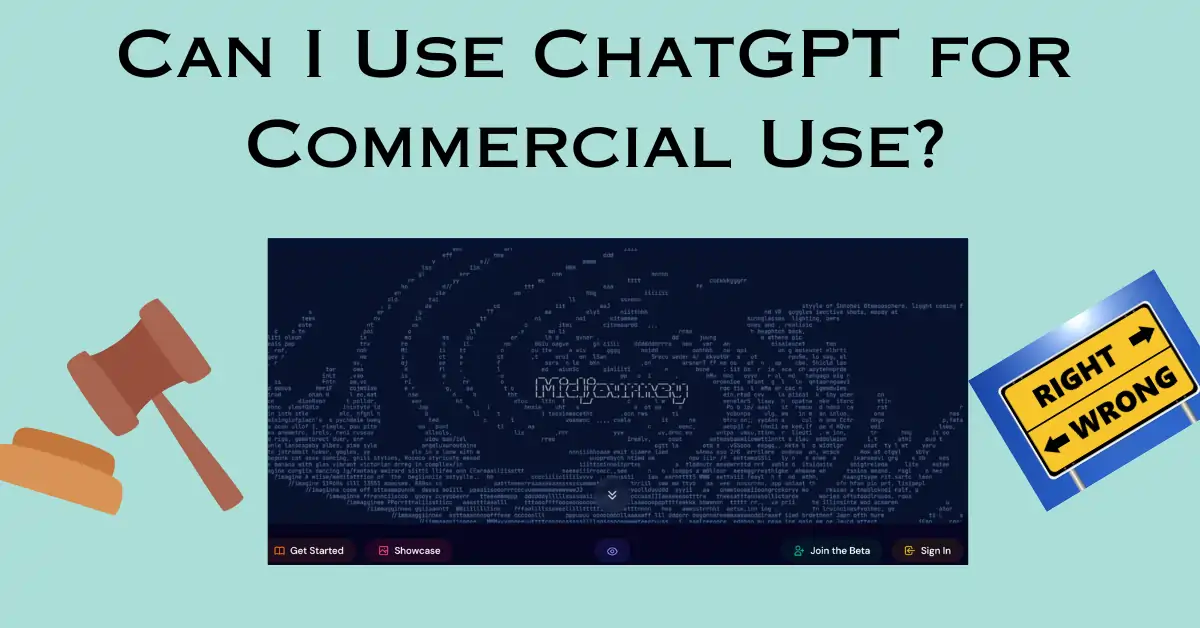ChatGPT is a powerful natural language generation (NLG) model that can create realistic and engaging text based on a given input. ChatGPT can be used for various purposes, such as chatbots, content creation, storytelling, and more.
But can you use ChatGPT for commercial use? What are the legal and ethical implications of using ChatGPT to generate content for your business or clients? In this blog post, we will explore these questions and provide some guidance on how to use ChatGPT responsibly and effectively.
What is ChatGPT?
ChatGPT is a conversational AI model that was developed by OpenAI, a research organization dedicated to creating and promoting artificial intelligence that can benefit humanity. ChatGPT is based on GPT-3, one of the most advanced NLG models in the world, which can generate text on almost any topic, given some context or prompt.
ChatGPT is specifically designed to produce natural and coherent dialogues, based on the style and tone of the input. ChatGPT can also adapt to different domains and scenarios, such as casual chats, trivia games, role-playing, etc. ChatGPT can also generate creative and humorous responses, making it a fun and entertaining tool to interact with.
You can access ChatGPT through the OpenAI Playground, a web-based interface that allows you to experiment with different models and settings. You can also use the OpenAI API, a cloud service that lets you integrate ChatGPT into your own applications and platforms.
How Can You Use ChatGPT for Commercial Use?
There are many potential use cases for ChatGPT in commercial settings. For example, you can use ChatGPT to:
- Create chatbots that can provide customer service, support, or information.
- Generate content for marketing, advertising, or social media.
- Produce product descriptions, reviews, or testimonials.
- Write stories, scripts, or dialogues for entertainment or education.
- Enhance your creativity and brainstorming process.
However, before you use ChatGPT for commercial use, you need to be aware of the terms of use and license agreement that govern your use of the model and the content it generates. You also need to consider the legal and ethical issues that may arise from using ChatGPT in your business or industry.
What are the Terms of Use and License Agreement for ChatGPT?
The terms of use and license agreement for ChatGPT are the same as those for the OpenAI API. You can find them here: https://openai.com/legal/#api-tos
According to these documents, you need to:
- Obtain an API key from OpenAI to access ChatGPT.
- Pay for the resources you use according to the pricing plan you choose.
- Comply with all applicable laws and regulations in your jurisdiction.
- Respect the intellectual property rights of others and not infringe them with your use of ChatGPT.
- Not use ChatGPT for any unlawful, harmful, abusive, or offensive purposes.
- Not use ChatGPT to impersonate or deceive others or misrepresent the source or origin of the content.
- Not use ChatGPT to create content that violates the privacy or personal data of others.
- Not use ChatGPT to create content that promotes hate speech, violence, discrimination, or extremism.
- Not use ChatGPT to create content that contains sensitive or confidential information.
- Not use ChatGPT to create content that may cause harm or damage to others or yourself.
- Disclose that you are using ChatGPT to generate content and provide a link to the terms of use and license agreement.
- Attribute OpenAI as the source of the model and provide a link to their website.
These are some of the main points that you need to follow when using ChatGPT for commercial use. However, these are not exhaustive or definitive. You should review the terms of use and license agreement carefully before using ChatGPT commercially and consult a legal professional if you have any doubts or questions.
What are the Legal and Ethical Issues of Using ChatGPT for Commercial Use?
Using ChatGPT for commercial use may also raise some legal and ethical issues that you need to be aware of and address. Some of these issues are:
- Quality and accuracy: How do you ensure that the content generated by ChatGPT is accurate, reliable, and relevant? How do you verify and validate the information and facts that ChatGPT produces? How do you handle errors or mistakes that may occur in the generated content?
- Liability and responsibility: Who is liable or responsible for the content generated by ChatGPT? Who bears the risk or consequences if the content causes harm or damage to others or yourself? How do you handle disputes or complaints that may arise from using ChatGPT?
- Transparency and accountability: How do you inform
Some of the legal and ethical issues of using ChatGPT for commercial use are:
- Lack of legal expertise: ChatGPT is not a trained lawyer and does not have the knowledge or authority to provide legal advice or guidance. ChatGPT may generate content that is inaccurate, incomplete, or misleading in the context of the law. ChatGPT may also fail to consider the nuances and complexities of different legal systems and jurisdictions.
- Inconsistent or misleading information: ChatGPT may generate content that is inconsistent or contradictory with other sources of information, such as official documents, contracts, or policies. ChatGPT may also generate content that is biased, deceptive, or manipulative, such as false or exaggerated claims, misleading statistics, or hidden agendas.
- Limited context awareness: ChatGPT may not be able to understand the context or purpose of the content it generates, such as the intended audience, the tone and style, or the specific requirements and expectations. ChatGPT may also not be able to handle complex or ambiguous scenarios, such as exceptions, edge cases, or hypothetical situations.
- Ethical concerns: ChatGPT may generate content that violates the ethical standards and principles of the profession or industry, such as confidentiality, integrity, honesty, or social responsibility. ChatGPT may also generate content that harms or offends the rights and interests of others, such as privacy, personal data, intellectual property, or reputation.
- Lack of accountability: ChatGPT may not be able to take responsibility or liability for the content it generates, such as the quality, accuracy, reliability, or legality. ChatGPT may also not be able to provide evidence or justification for the content it generates, such as the sources, methods, or assumptions. ChatGPT may also not be able to correct or update the content it generates in case of errors or changes.
These are some of the main issues that you need to be aware of and address when using ChatGPT for commercial use. However, these are not exhaustive or definitive. You should review the terms of use and license agreement carefully before using ChatGPT commercially and consult a legal professional if you have any doubts or questions.
Sources:
5 Compelling Reasons to Avoid ChatGPT for Legal Content (analyticsinsight.net)
Employers Should Consider These Risks When Employees Use ChatGPT (bloomberglaw.com)
Employers Should Consider These Risks When Employees Use ChatGPT (bloomberglaw.com)

